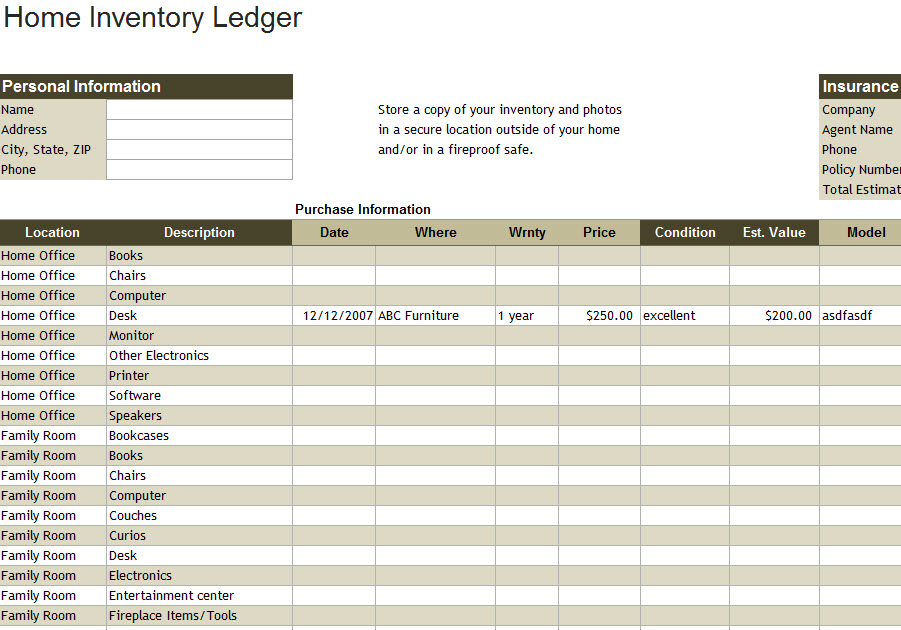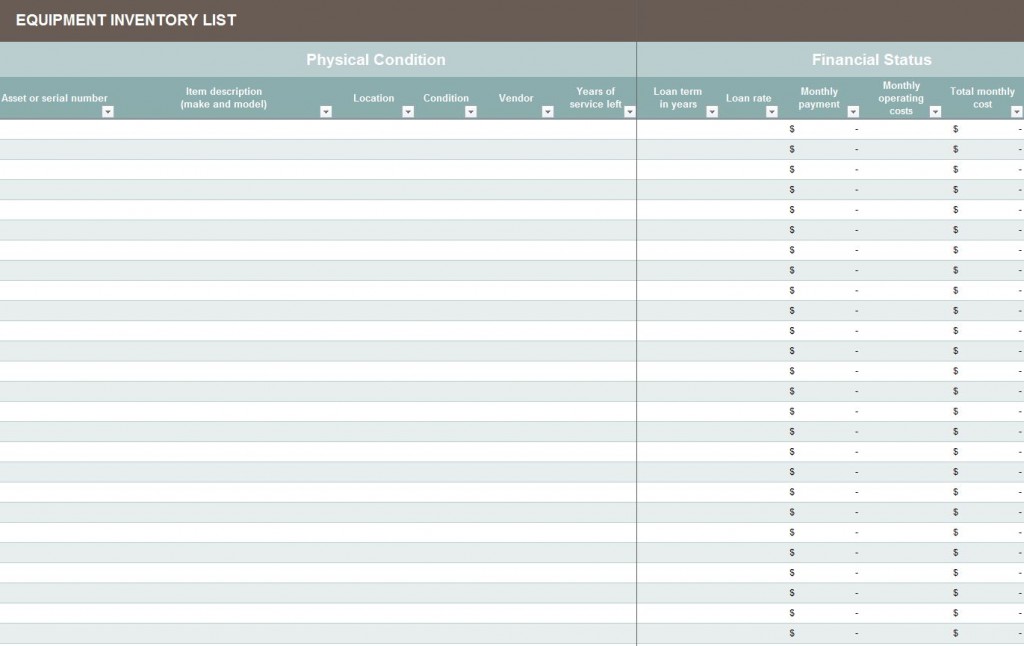


- #Do i need to track inventory for small business how to#
- #Do i need to track inventory for small business plus#
Gas mileage costs are 100% deductible, just be sure to hold on to all records and keep a log of your business miles (where you’re going and the purpose of the trip). For instance, if you have one cellphone, you can deduct the percentage you use the device for business. You can deduct the portion of your home that’s used for business, as well as your home internet, cellphone, and transportation to and from work sites and for business errands.Īny expense that’s used partly for personal use and partly for business must reflect that mixed use.
#Do i need to track inventory for small business plus#
Starting your business at home is a great way to keep overhead low, plus you’ll qualify for some unique tax breaks. Similar to vehicle expenses, you need to calculate what percentage of your home is used for business and then apply that percentage to home-related expenses. If they do, then the expense would be categorized as entertainment rather than a gift. For gifts like tickets to a concert, it matters whether the gift giver goes to the event with the recipient. Record where, when, and why you used the vehicle for business, and then apply the percentage of use to vehicle-related expenses.

Thankfully, your receipts also provide a paper trail of your business activities while away. The IRS and CRA are wary of people claiming personal activities as business expenses. On the back of the receipt, record who attended and the purpose of the meal or outing. Conducting a business meeting in a café or restaurant is a great option, just be sure to document it well. There are five types of receipts to pay special attention to: For US store owners, the IRS doesn’t require you to keep receipts for expenses under $75, but it’s a good habit nonetheless. This process can be simple and old school (bring on the Filofax), or you can use a service like Shoeboxed. It’s a crucial step that lets you monitor the growth of your business, build financial statements, keep track of deductible expenses, prepare tax returns, and legitimize your filings.įrom the start, establish an accounting system for organizing receipts and other important records. The foundation of solid business bookkeeping is effective and accurate expense tracking. Check with the individual bank for which documents to bring to the appointment. To open a business bank account, you’ll need a business name, and you might have to be registered with your state or province. Most business checking accounts have higher fees than personal banking, so pay close attention to what you’ll owe. Shop around for business accounts and compare fee structures. Corporations and LLCs are required to use a separate credit card to avoid commingling personal and business assets.īefore you talk to a bank about opening an account, do your homework. Credit is important for securing funding in the future. Next, you’ll want to consider a business credit card to start building credit. A good rule of thumb is to put 25% of your income aside, though more conservative estimates for high earners might be closer to one third. For instance, set up a savings account and squirrel away a percentage of each payment as your self-employed tax withholding. Start by opening up a business checking account, followed by any savings accounts that will help you organize funds and plan for taxes. Sole proprietors don’t legally need a separate account, but it’s definitely recommended. Note that LLCs (See our state specific guides for California LLC, Texas LLC and Florida LLC ), partnerships, and corporations are legally required to have a separate bank account for business. And if you want funding down the line, from creditors or investors, strong business financial records can increase the likelihood of approvals.

It also protects your personal assets in the unfortunate case of bankruptcy, lawsuits, or audits. Having a separate bank account keeps records distinct and will make life easier come tax time.
#Do i need to track inventory for small business how to#
Learn how to manage your books Accounting basics for small businessesĪfter you’ve legally registered your business, you’ll need somewhere to stash your business income. Luckily, it’s possible to learn how to manage your own books and there are a few notable benefits to tackling it yourself. Bookkeeping is something that you either have to learn or outsource when you’re running a business.


 0 kommentar(er)
0 kommentar(er)
